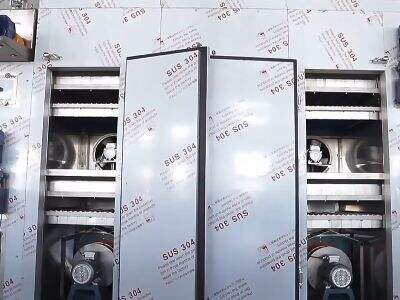How Grit Separation Improves Overall Sludge Treatment Efficiency
One of these is grit separation which plays a critical role in supporting an optimum sludge treatment process. The grit we'd remove from the sludge would not gum up a treatment process dutifully minding the removal of organic waste. In more detail, let's look at how this separation in grit leads to an increased sludge treatment efficiency.
Optimising sludge treatment efficiency, by ensuring effective grit separation
grit classifier wastewater treatment is an important step in the processing of sludge as it removes debris that would otherwise clog up machines and reduce the efficiency of treatment. If grit is allowed to intermingle with the sludge, it may result in pipe blockages and settle at the bottom of tanks, making removing water from the sludge more difficult. If we take the grit out before coming to the treatment process, then everything flows a lot smoother and quickly.
Improving sludge treatment process with efficient grit separation
Proper grit removal makes the whole sludge treatment process even more efficient. Rapidly removing grit from the sludge at the source means protecting expensive equipment downstream, and making sure every treatment process can deliver optimum performance. The faster, more productive processing of the sludge means a better quality output at the end.
Second, grit classifier is vital as it increases the effectiveness of sludge dewatering. If the grit is left to be dewatered with sludge, it makes it difficult to get rid of water. Therefore, more time will be spent on dewatering, which will prolong the whole treatment. When the grit is removed during the initial separation stage, there will be no obstacles to dewatering. In particular, this will increase the quality of the products obtained and the effectiveness of the process, as less energy and time will be involved. All in all, grit separation is a promising solution for increasing the overall performance of sludge treatment. Third, grit separation reduces maintenance costs. Specifically, sludge content has a negative impact on equipment, and a high amount of grit often leads to breakdowns. This may be a stumbling block in the successful operation, with the need for timely repair causing downtime. Therefore, when there is no grit to cause damage, less maintenance is needed to be done. As a result, treatment becomes more efficient, convenient, and cheaper.
Summary
Overall, grit separation is very important for general efficiency in sludge processing. If we remove grit from the sludge at an early stage, this can improve treatment process and increase the performance of dewatering for better overall results. Thanks to the grit separation technology from such a trusted manufacturer, sludge treatment facilities can perform at their best while lowering their maintenance costs and increasing the quality of what they deliver. Although very simple, grit separation can have a huge knock on effect in terms of improving the performance of sludge treatment processes.

